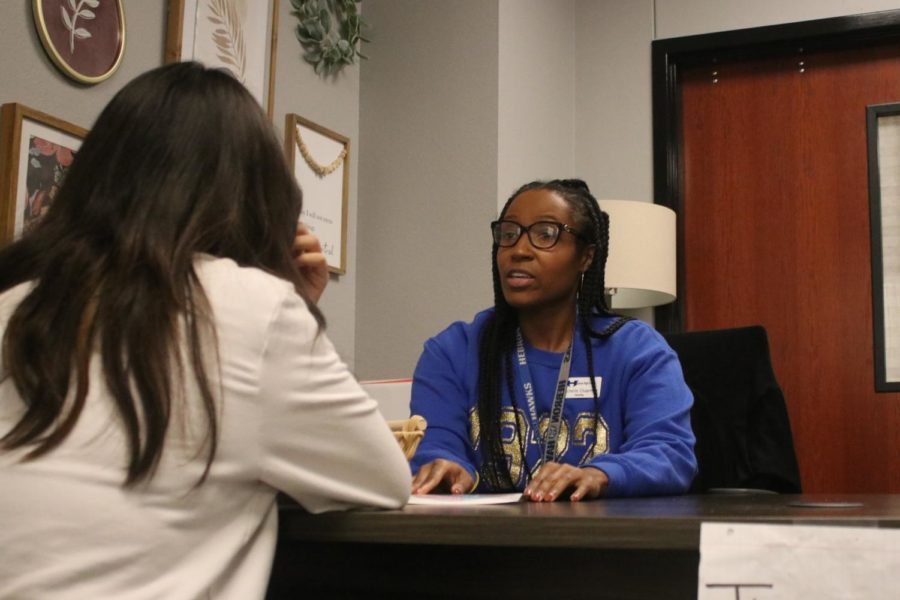Opinion: Therapy should not be seen as taboo
Therapy can be beneficial, especially if someone is struggling with anxiety, depression or any mental illness. If you or someone you know is struggling, there is help available.
“Are you OK?”
I used to hear that sentence all the time as tears ran down my face during multiple breakdowns. Every day in school, I would feel anxious. I was anxious about what people thought of me or about what my grades were. My mom began to grow worried and decided I should start going to therapy. After years of holding back, I decided to go. Therapy doesn’t just make me stronger, but it also helps those around me because they get to see a better, improved version of myself.
In our society, therapy has a stigma attached to it – it is seen as taboo or something you should not have to go to unless you are “crazy.” Many people do not go to therapy because of the fear of being seen as weak or to avoid acknowledging that they have a problem. I have seen my friends struggling with anxiety, but unable to go to therapy because their parents did not want to accept that their child is having a mental health problem.
Therapy can be beneficial, especially if someone is struggling with anxiety, depression or any other mental illness. Learning healthy coping methods can help individuals understand how to react in triggering situations and improve their self esteem. Having a mental illness does not just affect you, it affects the people around you. As someone who has seen people around them that they love and cherish recover through therapy, I know how beneficial it is.
People who go to therapy are seen as “crazy people” because many think that people are forced to go to therapy. However, most people that go do it by choice. Recognizing the problem only makes a person stronger. Going to therapy is difficult, but understanding how to cope with your mental illness is important. In return, the people around you will feel better because they know that you are becoming stronger and happier. “Therapy is hard work, and people who come to therapy are courageous and strong to ask for help and to make changes in their lives,” said therapist Holly LaBarbara.
Ever since the COVID-19 pandemic, more people have started attending therapy. During this time, people started using social media more and began sharing how they mentally felt online. Even celebrities have started speaking about their own mental health. Billie Eilish told her fans that she goes to therapy once a week. “I genuinely believe that everyone, every human on earth, should go to therapy, whether you feel this or that about your life, if you’re happy or anything,” Eilish said.
The recent trend for therapy has shown that “one out of every six Americans started therapy for the first time [since 2020].” As more individuals speak about their mental health, therapy will become normalized. Therapy is becoming more acceptable as people reach out for help, but a lot of people still think it is taboo. “[Americans] often see work, home and social responsibilities as being more important than their personal health and well-being,” Chief Clinical Officer of Vida Health Chris Mosunic said. We live in a fast paced society and sometimes, to keep up, we forget about ourselves and our own health. We put so much pressure on being perfect, whether in the workplace, at school or while maintaining relationships. To prevent the burnout or depression that can come from this, people should seek help by going to therapy to express their feelings in a healthy way.
Therapy is sometimes necessary for individuals to remain healthy and should not be seen as taboo. Our generation and ones to come should be more open-minded to normalize attending therapy. Individuals should feel comfortable getting the help they need and not feel any different than somebody who does not attend therapy. If you or someone you know is struggling, there is help available. Attending therapy does not make you weaker, it makes you stronger for recognizing the problem at hand.
Mental Health I Care Crisis Line:
- Call or Text: 1-800-866-2465
Suicide & Crisis Lifeline:
- Call or Text 988

Senior Eyesha Sadiq is the entertainment editor and this is her second year on the staff. When she’s not in the newsroom, she’s either playing with...



